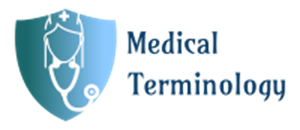The language of medicine, often laden with complex terminologies and intricate jargon, can appear daunting to the uninitiated. However, there are compelling reasons why someone might want to learn this specialized language, transcending beyond mere professional necessity.

Empowerment in Healthcare
Understanding medical language empowers individuals to take control of their own health. Patients who grasp medical terminology can better understand diagnoses, treatment options, and prognoses. This knowledge facilitates more informed discussions with healthcare providers, leading to shared decision-making and improved outcomes. For example, understanding terms like “hypertension” versus “hypotension” can significantly impact one’s comprehension of blood pressure conditions and appropriate lifestyle adjustments.
Career Advancement
Fluency in medical language is indispensable for those aspiring to join the healthcare industry. Professions such as doctors, nurses, pharmacists, medical researchers, and even administrative staff require precise communication to ensure accuracy and efficiency in patient care. Misunderstandings in medical contexts can have serious, even life-threatening consequences. Therefore, mastering this language is not just about professional growth but also about ensuring patient safety.
Academic Pursuits
Students and scholars pursuing careers in medicine or related fields must be proficient in medical terminology. It is the foundational language of textbooks, research articles, and academic discussions. Navigating medical literature and contributing to scholarly debates is nearly impossible without this knowledge. Learning this language opens doors to vast amounts of information and enables one to contribute to medical knowledge through research and innovation.
Enhancing Communication Skills
Medical language is not solely for healthcare professionals. Those in related fields—such as medical transcriptionists, medical interpreters, or health information managers—must also be adept in this specialized vocabulary. Effective communication in these roles supports the broader healthcare ecosystem, ensuring that medical records are accurately transcribed, non-English-speaking patients receive precise translations, and health data is correctly managed.
Personal Satisfaction
There is also a personal satisfaction that comes from mastering the language of medicine. It is a challenging and intellectually stimulating pursuit that can lead to a greater appreciation of the complexities of the human body and the field of medicine. This knowledge is fascinating for many and fulfills a desire for continuous learning and intellectual growth.
Community Contribution
Finally, those knowledgeable in medical language can play vital roles within their communities. They can assist others in understanding their medical conditions, translating complex medical information into layman’s terms, and advocating for health literacy. This can be particularly valuable in communities with limited access to healthcare education, where such individuals can bridge critical gaps in knowledge and understanding.
In summary, learning the language of medicine is a multifaceted endeavor that empowers individuals, enhances career prospects, supports academic goals, improves communication, offers personal satisfaction, and enables community contribution. It is an invaluable skill that resonates beyond the confines of medical professions, benefiting individuals and society.
If you are interested in Learning The Language of Medicine then check out this exceptional medical terminology textbook and online medical terminology course.
